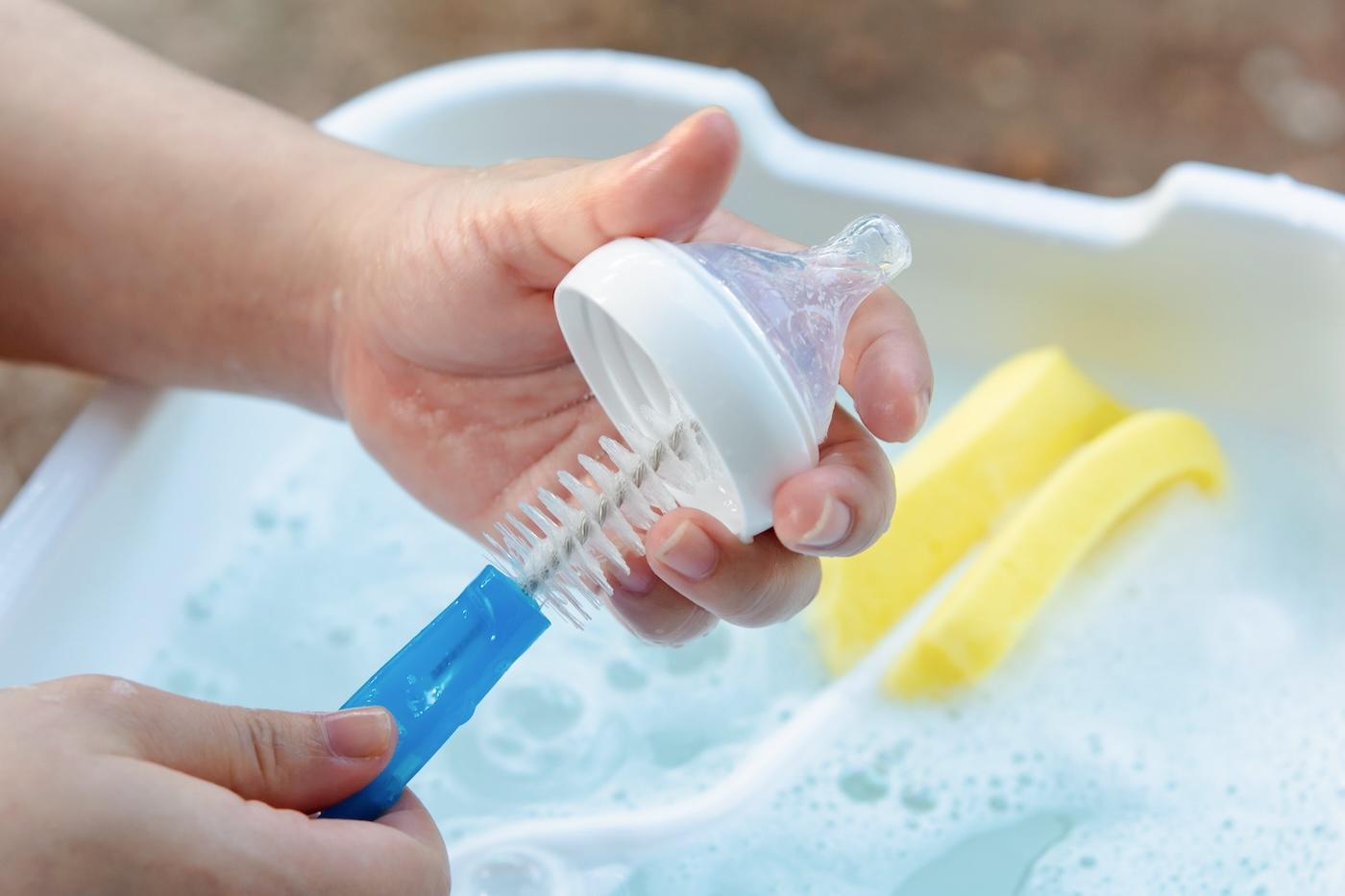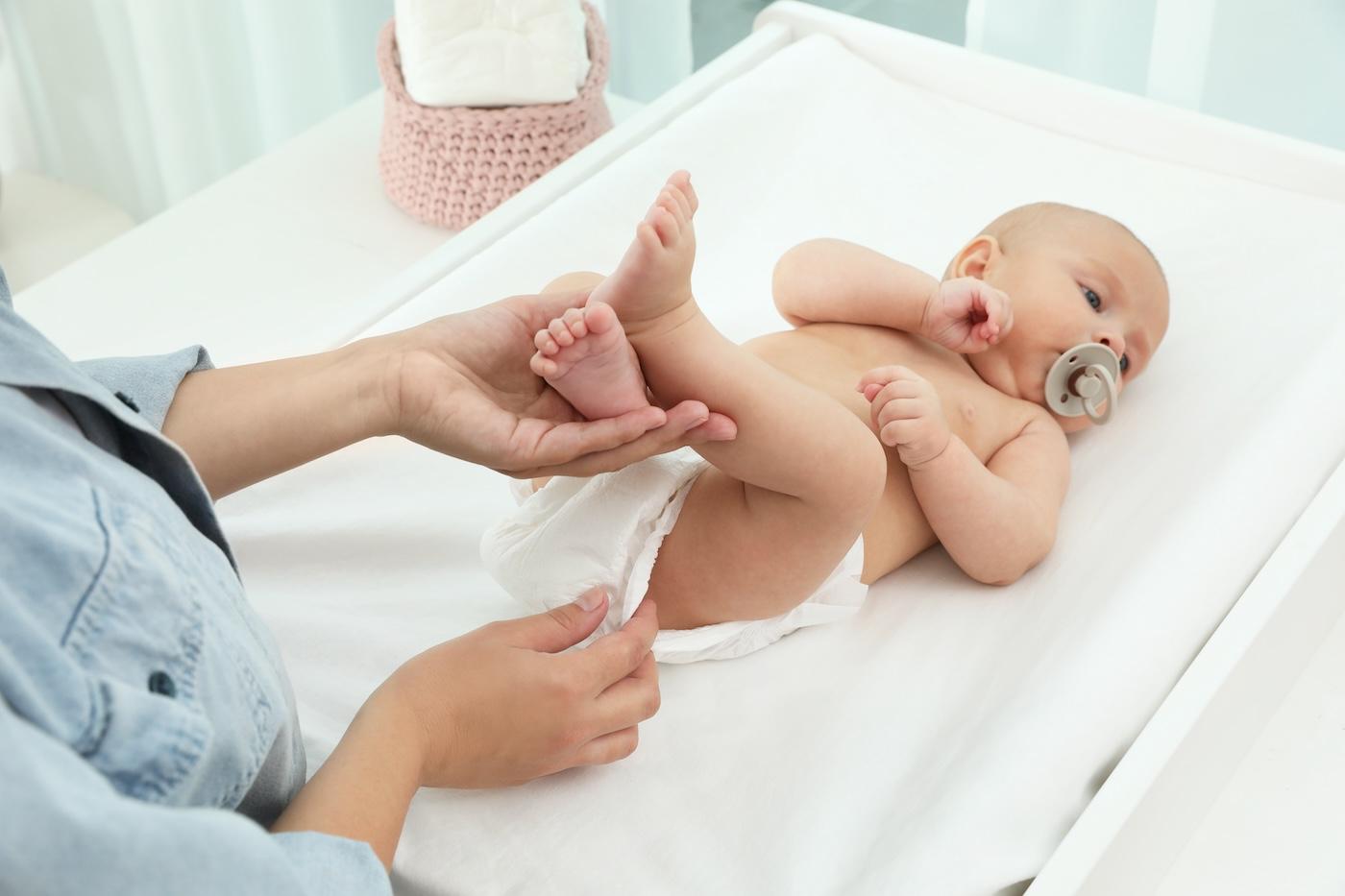BABY
How to Make it Through the Baby Formula Shortage
The current baby formula shortage is nerve-wracking to say the least! Here, pediatrician Dr. Harvey Karp offers much-needed advice.

Written by
Dr. Harvey Karp

You know the old adage “breast is best,” but here’s the bigger truth: by six months, 3 out of every 4 babies are getting at least some infant formula, according to the Center for Disease Control and Prevention. That means millions of babies are greatly impacted by the nationwide baby formula shortage. Shockingly, 43% of infant formula products have disappeared from shelves. And it’s reported that the shortage will continue at least into early summer.
Thankfully, President Biden recently invoked the Defense Production Act, which not only increases baby formula production here in America, it ensures the safe and speedy transport of infant formula from overseas. The first shipment filled with roughly 78,000 pounds of hypoallergenic infant formula recently arrived in Indianapolis. That’s enough to fill over half a million baby bottles, and more imported infant formula is expected to arrive soon. But “soon” may be a ways away. Here’s what parents need to know to keep their baby well-fed while riding out this very scary scarcity.
Why is there an infant formula shortage?
Here are a few of the biggest reasons for the baby formula shortage:
- A big recall: Back in February 2022, the Food and Drug Administration (FDA) recalled numerous brands of infant formula after several infants were reported to get a rare illness (Cronobacter) that was traced back to probable contamination at a manufacturing plant. There have been five illnesses and two deaths. Abbott Labs has recalled Similac, Alimentum, and EleCare powdered formula with the following info on their labels:
- Big shifts in demand: Data shows people began stockpiling infant formula as the pandemic panic hit. That caused a big surge in demand…followed by a big slow down (as families used up the extra formula in their pantries). Those shifts made it hard for manufacturers to figure out how much formula was really needed. The result? Far less infant formula went into production than was needed.
- Changing breastfeeding rates: A 2022 report in the journal Breastfeeding Medicine found that the prevalence of both exclusive and partial breastfeeding significantly dropped among moms who gave birth during the pandemic. That made the demand for infant formula considerably higher than usual.
- Lack of imports: As you can imagine, the FDA has very strict rules when it comes to infant formula. And even though research shows that many European-made infant formulas are not only safe, but they also meet the federal guidelines…foreign-made formula is simply verboten in America. (Good news: The White House announced a new effort to make it easier to buy infant formula from abroad.)
What can I do to keep my infant fed?
There are some steps you can take—and some things you should definitely not do—to safely ride out this anxiety-provoking shortage. Okay, here are four DON’Ts and five DOs:
DON’T serve your baby cow’s milk, unless…
Once your baby is 12 months old, you can ditch the formula and use whole milk. Before 6 months, milk is totally off limits. (While cow’s milk is good for baby cows, it’s no safe for baby humans thanks to too much salt, calcium, protein—and too little iron, and more.) However, once babies are over 6 months—and not on a specialty formula for medical needs—you can try some whole cow's milk or soft dairy, like ricotta cheese or plain whole milk yogurt. Avoid flavored yogurt, which contains far too much sugar. Simply blend in some fruit or veggie puree to sweeten it a bit. It’s also helpful to mix in some pureed organic prunes or organic prune juice. The American Academy of Pediatrics (AAP) advises that giving whole milk to kids under 12 months is “not ideal and should not become routine,” so it’s always best to consult your pediatrician. (Note: You’ll want to bump your baby’s iron consumption, since cow’s milk has very little, and your doctor may recommend increasing iron containing foods, like the prunes or baby iron drops.)
DON’T water down your infant formula.
While it can be very tempting to stretch the infant formula you do have by adding extra water, don’t do it! Watering down formula is dangerous. It can cause serious health problems, like seizures from low sodium, failure to grow from low calories, and anemia from low iron levels.
DON’T make your own baby formula.
We know…there are lots of recipes for homemade baby formula on Pinterest, but that doesn’t mean they are safe. In fact, they most definitely are not safe. Beyond not meeting your baby's nutritional needs—infants have died after consuming DIY baby formula.
DON’T bother with toddler formula…and don’t give it to your baby.
If you are serving your 1- to 3-year-old toddler formula—stop! It’s unnecessary. (The exception: If your toddler has a medical issue or there’s a concern about growth, your pediatrician may recommend toddler formula.) Your toddler should be drinking whole milk by the age of 1. (Unsure how to proceed? Follow this guide to serving milk to toddlers.) That said, while toddler formula is not recommended for infants, the AAP notes that if you absolutely have no other infant formula or breastmilk options, toddler formula is safe for a few days for babies who are close to a year old. Consult your child’s healthcare provider before serving toddler formula to a baby.
DO reach out to your network.
The shortage is widespread, but spotty. This is the time to send an SOS to your friends and family to be on the lookout for the formula you need and send it to you, if they happen to see it on the shelves when they’re out shopping.
DO explore an infant formula exchange.
The Free Formula Exchange is a nationwide online network that connects parents who need baby formula with those who have baby formula to donate. As the name states, it’s all free. So, that means paying for infant formula is strictly prohibited. You can search for available donations or simply click the “I need formula” button and enter some basic info, including the type of baby formula you need and any dietary restrictions your baby may have. (You can also note how urgent your need is.) Next, you’ll be able to access a list of folks who have infant formula to donate. Finally, text or email them directly and set up an exchange. (And if you have baby formula to donate, click the “I can donate” button and go from there.)
DO switch infant formula brands, unless…
If your go-to brand is sold out, it’s totally okay to use what’s available…as long as it is similar to your usual brand. That means, if your child is on regular formula, you can try a different regular formula. You can also safely feed your full-term little one infant formula designed for premature babies for a few weeks if that’s the only baby formula available. And if your baby is on a specialty formula, then you can try a different specialty formula that is created for the same condition—just consult with your pediatrician before switching.
DO consult a lactation specialist.
If you’re currently combo feeding breastmilk and infant formula, a lactation consultant can help shift your breast-to-formula ratio to include more breastmilk. A few things they might suggest to help stimulate more milk production include: nursing more regularly; making sure you are getting plenty of sleep, food, and fluids; pumping a couple of ounces before you nurse—this way you get the easy milk in 10 minutes and the baby works to get the rich hind milk.
DO talk to your healthcare provider.
Your child’s doctor or nurse practitioner will be your best guide through the shortage, they may even have some formula samples to give out. (PS: Your midwife or OB/GYN may be privy to infant formula samples, too. Call!) If all else fails, your physician may have information about charities that have infant formula for those most vulnerable.
While this infant formula shortage is scary, it is going to get better. In the meantime, don’t go it alone! Reach out to your doctor, family, and friends for help. Finally, your local WIC office (The Special Supplemental Nutrition Program for Women, Infants, and Children) may also be able to suggest places to look for infant formula.
Disclaimer: The information on our site is NOT medical advice for any specific person or condition. It is only meant as general information. If you have any medical questions and concerns about your child or yourself, please contact your health provider.
SHARE THIS ARTICLE
MOST LOVED
Sleepytime Sidekicks












